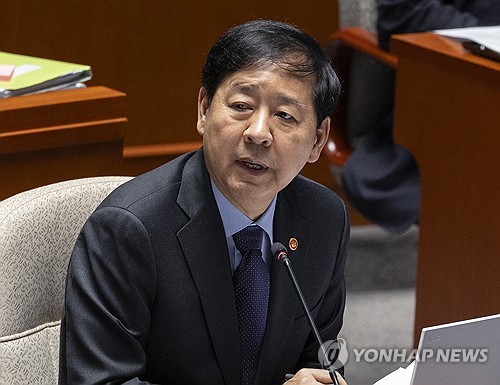
(Seoul=Yonhap Infomax) Hak Seong Kim – The Korea Corporate Governance Forum has argued that when applying the government's proposed separate taxation on dividend income, the dividend payout ratio should be calculated based on consolidated financial statements, not separate financial statements.
The forum stated that using separate financial statements to determine the payout ratio does not reflect economic substance and could lead to unintended side effects such as private benefit extraction.
In a commentary released on the 24th, the Korea Corporate Governance Forum said, "To achieve results aligned with economic substance, global standards, and policy objectives, it is reasonable to calculate the dividend payout ratio using 'net income attributable to owners of the parent' from consolidated financial statements."
According to the Ministry of Economy and Finance's tax reform proposal, companies with a dividend payout ratio of 40% or higher (or 35% under a bill proposed by Democratic Party lawmaker Lee So-young), or those that have increased dividends by more than 5% compared to the average of the previous three years with a payout ratio of at least 25%, will be eligible for separate taxation on dividend income.
The method for calculating the payout ratio will be determined by presidential decree, which has not yet been announced, leaving it unclear whether the standard will be based on separate or consolidated financial statements.
The forum expressed concern that, as in the temporary 'tax incentives for high-dividend companies' implemented in 2016, companies preparing consolidated financial statements may again be required to use net income from separate financial statements.
The forum warned that basing the payout ratio on separate financial statements would create a disconnect from economic reality.
The forum explained, "From the perspective of shareholders investing in Company A, profits generated from A's own business as well as the portion of profits earned by its consolidated subsidiaries, proportional to A's ownership stake, both belong to A's shareholders." The forum emphasized, "All global standards for calculating dividend payout ratios use net income attributable to owners of the parent from consolidated financial statements, and South Korea is no exception."
As an example, the forum cited Hanwha Corp. (000880), which paid 73.7 billion won ($56.2 million) in dividends last year. Its net income was 197.4 billion won ($150.5 million) on a separate basis and 773.0 billion won ($589.3 million) on a consolidated basis.
On a consolidated basis, the dividend payout ratio is 9.5%, but on a separate basis, it jumps to 37.3%. The forum noted, "This effectively certifies a company that returns only 10% of shareholder profits as a 'high-dividend company' and grants it tax benefits."
The forum further argued that providing tax incentives based on separate financial statements could distort capital allocation and corporate governance.
The forum concluded, "If incentives are based on consolidated standards, companies will naturally return assets with lower ROE (return on equity) to shareholders first, aligning with the policy's intended purpose."
hskim@yna.co.kr
(End)
Copyright (c) Yonhap Infomax. Unauthorized reproduction and redistribution prohibited. AI learning and utilization prohibited.
Copyright © Yonhap Infomax Unauthorized reproduction and redistribution prohibited.

